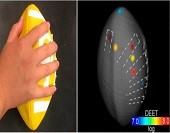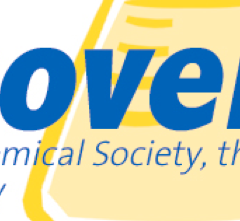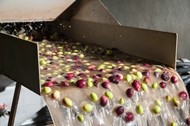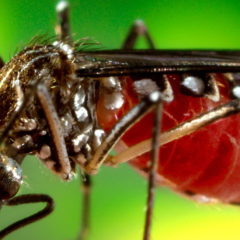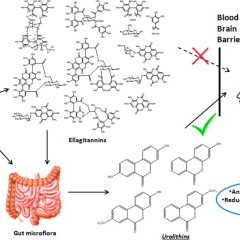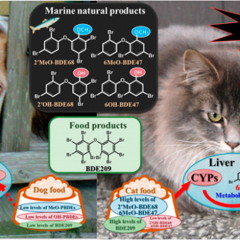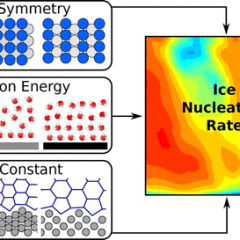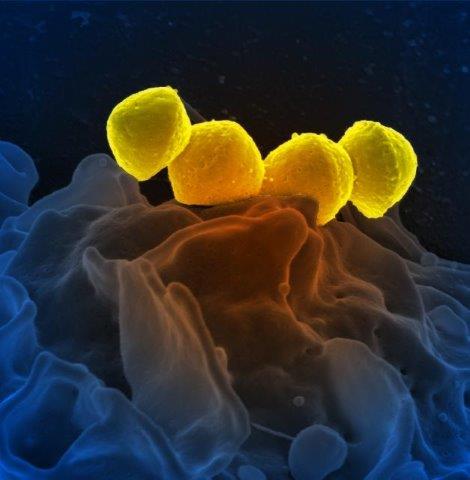Discoveries: Robotics takes mass spec to the third dimension for forensics, pharma applications
Within the past decade, many advancements have been made in the 3-D market from printing to movies. Now scientists report in ACS’ Analytical Chemistry that by combining a robotic arm and mass spectrometry, they can analyze the surface of irregularly shaped 3-D objects, potentially opening up new branches of forensics and pharmaceutics. Mass spectrometry (MS) is a tool that helps researchers identify the components of a sample....
Discoveries: How cats and dogs are consuming and processing parabens
“Parabens and Their Metabolites in Pet Food and Urine from New York State, United States” Environmental Science & Technology Many households can claim at least one four-legged friend as part of the family. But pets that primarily stay indoors can have increased rates of diseases, such as diabetes, kidney diseases and hypothyroidism compared with those that stay exclusively outside. Some scientists propose that chemical...
Discoveries: Creating surfaces that repel water and control its flow (video)
ACS Applied Materials & Interface To prevent water and ice from making our shoes soggy, frosting our car windows and weighing down power lines with icicles, scientists have been exploring new coatings that can repel water. Now one team has developed a way to direct where the water goes when it’s pushed away. Their report appears in the journal ACS Applied Materials & Interfaces. Water-repelling, or superhyrdophobic,...
Discoveries: To improve dipstick diagnostic and environmental tests, just add tape
Simple paper-strip testing has the potential to tell us quickly what’s in water, and other liquid samples from food, the environment and bodies — but current tests don’t handle solid samples well. Now researchers have developed a way to make these low-cost devices more versatile and reliable for analyzing both liquid and solid samples using adhesive tape. They report their approach in the journal ACS Applied Materials...
Discoveries: Cool textiles to beat the heat
ACS Nano Functionalized clothes have become the norm in recent years. We now have moisture-wicking and smell-proof athletic gear, and shirts and tops coated with a chemical layer that blocks ultraviolet rays. Clothes that help cool us down, however, have been harder to achieve. So far, such attempts have resulted in materials that incorporate bulky components, require a lot of energy or are expensive. Liangbing Hu and colleagues at...
Discoveries: Olive mill wastewater transformed: From pollutant to bio-fertilizer, biofuel
Olive mill wastewater transformed: From pollutant to bio-fertilizer, biofuel ACS Sustainable Chemistry & Engineering Olive oil has long been a popular kitchen staple. Yet producing the oil creates a vast stream of wastewater that can foul waterways, reduce soil fertility and trigger extensive damage to nearby ecosystems. Now in a study appearing in ACS Sustainable Chemistry & Engineering, scientists report on the development...
Discoveries: Electronic ‘hairy skin’ could give robots a more human sense of touch
Electronic-skin prototypes are stretchy, thin films that can sense temperature, pressure and even monitor blood oxygen or alcohol levels. But most of these devices are missing a key feature of real skin that allows us to feel a wider range of conditions: hair. Now researchers have combined hair-like wires with electronic skin to make a more versatile sensor for robots, prosthetics, and other applications. Their report appears in the...
Discoveries: Probing a mosquito protein for clues in the fight against Zika
As health departments around the U.S. boost efforts to combat Zika, scientists are working on new ways to kill the mosquitoes that carry the virus. One approach involves understanding the molecular mechanisms that keep the bugs alive so we can then undermine them. Scientists report in the ACS journal Biochemistry that they have revealed new structural insights on a key protein from Aedes aegypti, the mosquito species most often linked...
Discoveries: What Flint’s water crisis could mean for the rest of the nation
Elevated levels of lead in the drinking water in Flint, Michigan, brought to light not only the troubles of one city but also broader concerns about the nation’s aging water distribution system. As Earth Day approaches, a noted scientist is calling for federal funding to replace deteriorating lead pipes in large swaths of the United States. In an editorial, Jerald Schnoor outlines recommendations on how to address the issue in...
Gut bacteria make pomegranate metabolites that may protect against Alzheimer’s disease
from ACS Chemical Neuroscience In a quest to stay healthy, many people are seeking natural ways to prevent neurodegenerative diseases. Recent studies show that pomegranate extract, which is a rich source of disease-fighting polyphenols, can help protect against the development of Alzheimer’s disease. But researchers weren’t sure which molecules to thank. A team reports in ACS Chemical Neuroscience that the responsible...
Fish-flavored cat food could contribute to feline hyperthyroidism
from Environmental Science & Technology Over the past three decades, the number of cats diagnosed with hyperthyroidism has increased. According to research reports, many factors such as exposure to flame retardants could be responsible, and now a new study in ACS’ journal Environmental Science & Technology points in another direction. It suggests that fish-flavored cat food could be among the culprits. Hyperthyroidism is...
Discoveries: Chipping away at the secrets of ice formation
Making ice to chill our drinks is easy enough, but surprisingly, the details of that seemingly simple process are still not well understood. Now scientists report in the Journal of the American Chemical Society that they have unlocked some of ice’s mysteries while debunking a major assumption about the process. The findings could help us better understand how water freezes, which has significant implications for climate science,...
Interesting Links: Federal Crowdsourcing and Citizen Science Toolkit
Taken from: https://crowdsourcing-toolkit.sites.usa.gov/ Welcome! Crowdsourcing and citizen science help federal agencies to innovate, collaborate and discover. In this toolkit, you will learn how to design and maintain projects. You can also read through case studies and access additional resources related to communities that practice crowdsourcing and citizen science. What Is Crowdsourcing? Crowdsourcing involves an open call for...
Discoveries: Sniffing out cancer with improved ‘electronic nose’ sensors
Nano Letters Scientists have been exploring new ways to “smell” signs of cancer by analyzing what’s in patients’ breath. In ACS’ journal Nano Letters, one team now reports new progress toward this goal. The researchers have developed a small array of flexible sensors, which accurately detect compounds in breath samples that are specific to ovarian cancer. Diagnosing cancer today usually involves various...
Discoveries: An All-Natural Sunscreen Derived from Algae
For consumers searching for just the right sunblock this summer, the options can be overwhelming. But scientists are now turning to the natural sunscreen of algae — which is also found in fish slime — to make a novel kind of shield against the sun’s rays that could protect not only people, but also textiles and outdoor materials. They report on their development in the journal ACS Applied Materials & Interfaces. Existing...
Discoveries: Many plastics labeled ‘biodegradable’ don’t break down as expected
Plastic products advertised as biodegradable have recently emerged, but they sound almost too good to be true. Scientists have now found out that, at least for now, consumers have good reason to doubt these claims. In a new study appearing in the ACS journal Environmental Science & Technology, plastics designed to degrade didn’t break down any faster than their more conventional counterparts. Susan Selke, Rafael Auras and...
Discoveries: Could an HIV drug beat strep throat, flesh-eating bacteria?
With antibiotic resistance on the rise, scientists are looking for innovative ways to combat bacterial infections. The pathogen that causes conditions from strep throat to flesh-eating disease is among them, but scientists have now found a tool that could help them fight it: a drug approved to treat HIV. Their work, appearing in the journal ACS Chemical Biology, could someday lead to new treatments. Douglas A. Mitchell and colleagues...
Discoveries: Smart keyboard cleans and powers itself — and can tell who you are
In a novel twist in cybersecurity, scientists have developed a self-cleaning, self-powered smart keyboard that can identify computer users by the way they type. The device, reported in the journal ACS Nano, could help prevent unauthorized users from gaining direct access to computers. Zhong Lin Wang and colleagues note that password protection is one of the most common ways we control who can log onto our computers — and see the...
Discoveries: ‘Electronic skin’ could improve early breast cancer detection
For detecting cancer, manual breast exams seem low-tech compared to other methods such as MRI. But scientists are now developing an “electronic skin” that “feels” and images small lumps that fingers can miss. Knowing the size and shape of a lump could allow for earlier identification of breast cancer, which could save lives. They describe their device, which they’ve tested on a breast model made of...

